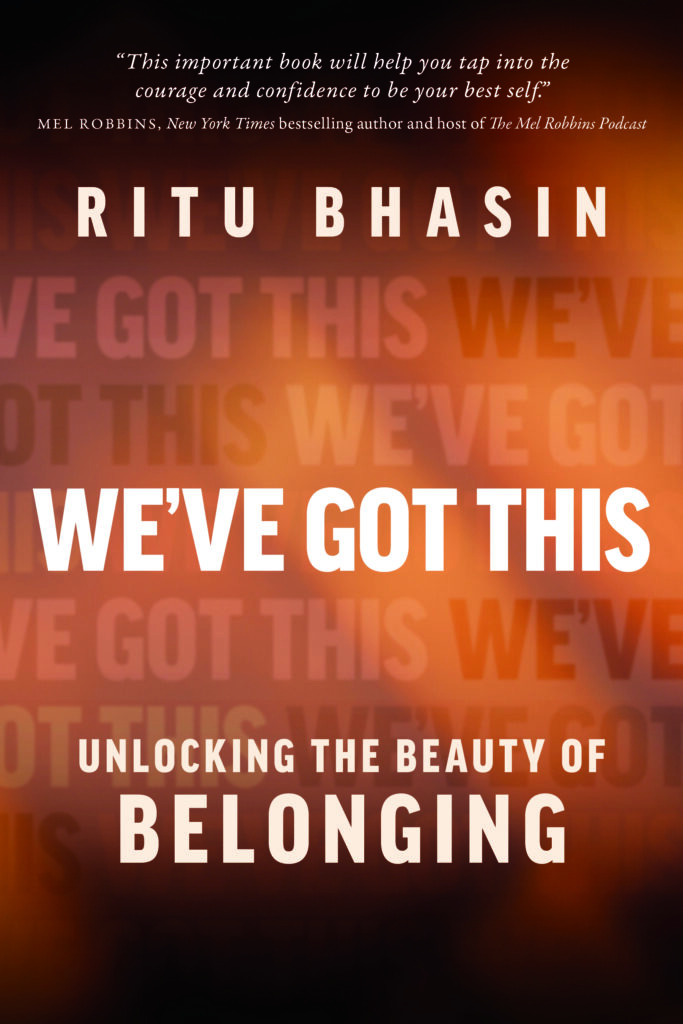Belonging is the feeling of being accepted for who you are by your own self and by the people you choose to be bonded with, so that you feel seen and valued. It’s about your instinctive need to reveal your authenticity and, in doing so, knowing you’ll be honored and respected for who you are across your identities. Because belonging is a feeling, your body will signal to you that you’re experiencing acceptance through the comforting and affirming sensations within you. You’ll feel safe, calm, and at ease.
Authenticity is the practice of consistently choosing to know, embrace, and be who you are, especially what makes you different and unique, as much as possible. It’s at the root of what I call the Authenticity Principle: the life tenet that when you consistently choose to be authentic, you’ll feel more joyful and connected to yourself, you’ll bring this spirit into your interactions, and in doing so you’ll invite people to do the same back with you. When you’re practicing authenticity, you’ll feel warm and uplifting sensations all over your body.
Given these definitions, it is easy to see how belonging and authenticity are inextricably intertwined. To experience belonging, you must be able to reveal your authentic self. And when you feel safe to be your authentic self, this is when you experience the greatest belonging.
This connection between belonging and authenticity underscores an essential takeaway: the most important relationship you’ll ever cultivate is the one you have with yourself. It’s not until you feel seen, accepted, and loved by yourself that you’ll enjoy deep and meaningful connection with others. Simply put, you won’t experience belonging until you first honor your authentic self.
EXPLORING YOUR THREE SELVES
I offer a guide for living more authentically called the Three Selves Framework.
The Performing Self sits on one end of this continuum in the “Zone of Disempowerment,” because it hurts your soul to mask and armor up, as we’ve now explored in Hurting and Healing. Throughout these pages, as I’ve been talking about belonging, I’ve essentially been highlighting the importance of pushing out of your Performing Self and choosing instead to be your Authentic Self or your Adapted Self, both of which are reflections of your authenticity.

To experience the greatest depth of belonging, you want to show up as your Authentic Self as much as possible. Your Authentic Self is who you’d be if there were no negative consequences for how you behave—it’s how you’d express your emotions, what body language you’d use, how you’d speak, the words you’d use, how you’d dress, the content you’d share, and so much more. It’s the good, the bad, and the ugly of who you are, but because it’s the truest reflection of your essence, it feels the best to do. This is why it tops what I call the “Zone of Empowerment.”
That said, you can, and sometimes need to, choose to show up as your Adapted Self, especially in moments where being your Authentic Self doesn’t feel safe or you just don’t want to. Your Adapted Self is who you are when you willingly choose to adjust your behavior from how your Authentic Self would show up because the moment calls for it. For example, I love to cuss like a pirate and, as I already shared, the F-word is one of my favorites, but in this book I’m mentioning frogs instead, in case a child starts to read through the pages. And I’m good with that. Your Adapted Self is happy and willing to make behavioral shifts because it feels fine to do, it serves you, it serves others, and it’s still a reflection of your authenticity. It also falls in the “Zone of Empowerment,” but when you keep adapting your behavior and it starts to feel like you’re conforming or masking, then you’re back into the “Zone of Disempowerment.”
The reason why I’m digging into the Three Selves Framework in this book is that, as you can see, belonging happens when you choose to show up as your Authentic Self and your Adapted Self. Along your path to belonging, you want to use your core wisdom to help make choices that enable you to be these two Selves—your Authentic Self in particular—instead of living as your Performing Self.
Knowing how and when to flow between your Authentic Self and Adaptive Self is a learned skill. By tuning in to your body and mind, you’ll know how you want to behave from minute to minute, person to person, and moment to moment. And the more you rely on your healing practices and core wisdom to make this happen, the greater the likelihood you’ll live authentically—which is essential for being accepted and honored for who you are.

Excerpted from We’ve Got This: Unlocking The Beauty of Belonging by Ritu Bhasin, Amplify Publishing (June 13, 2023)


